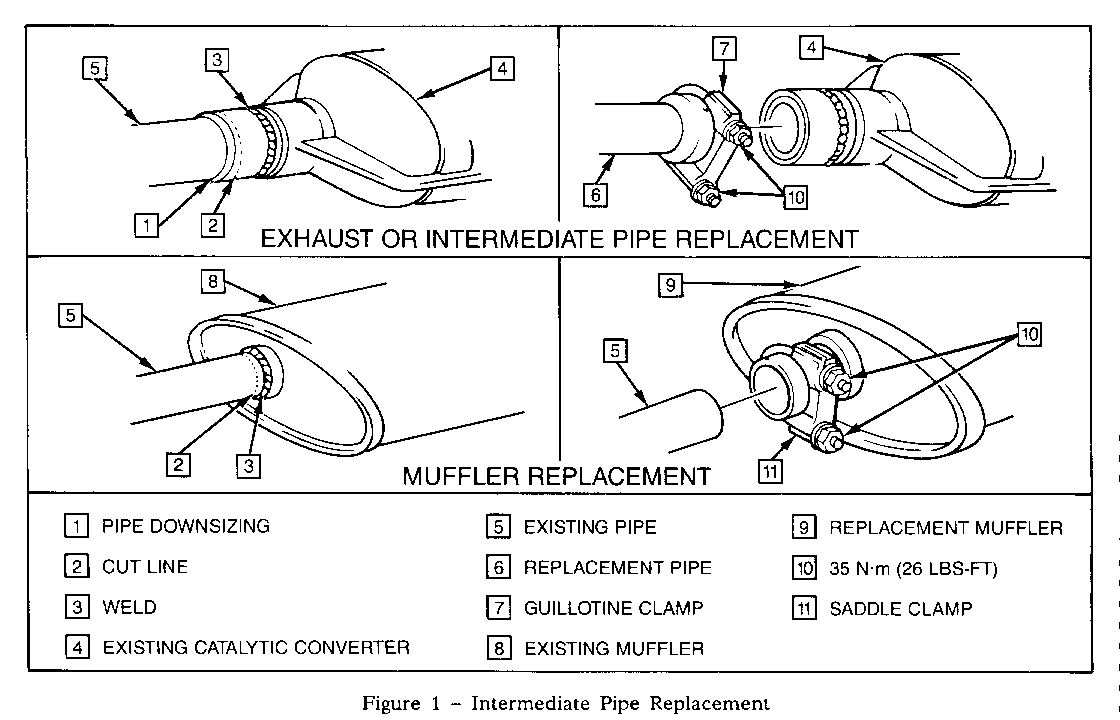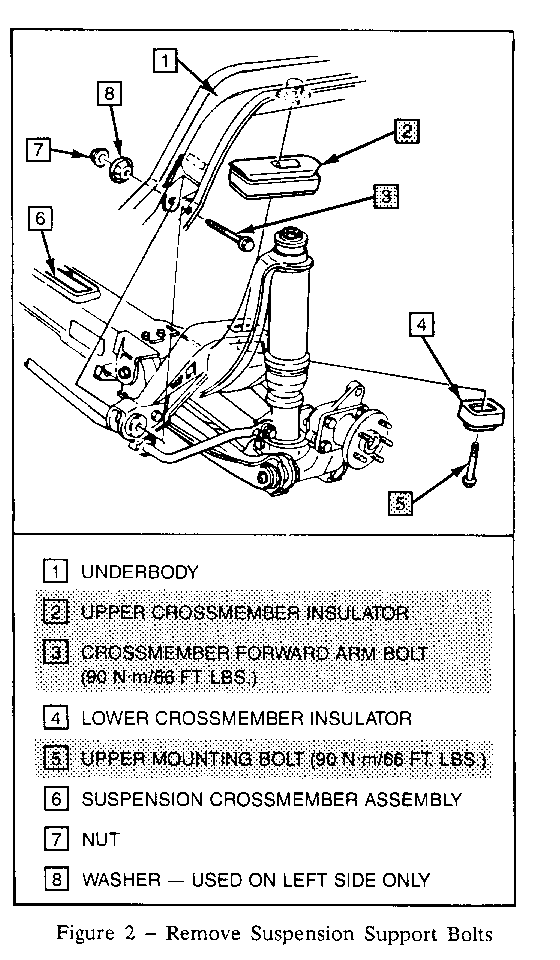MANUAL UPDATE-SEC 6F. EXHAUST INTERMEDIATE PIPE REPLACEMENT

MODELS AFFECTED: 1986-88 RIVIERAS
This bulletin describes the proper procedure to replace an intermediate pipe on 1986-1988 Rivieras. This information will be included in the 1989 Final Service Manual for these models.
The factory exhaust systems on the Riviera models are completely welded from the catalytic converter back. Due to the routing of the intermediate pipe through rear suspension components, the following procedure should be followed to simplify the removal and installation process:
1. Raise vehicle on a twin-post type hoist according to proper service manual procedures. Support the catalytic converter and muffler.
2. Disconnect the intermediate pipe front hanger. Disconnect the underbody tunnel brace if equipped.
3. At the locations shown in Figure 1, cut the intermediate pipe at the converter outlet and at the muffler inlet. Use a reciprocating hacksaw, Kent-Moore tool J-35976 or equivalent, to make all cuts.
4. Remove the muffler assembly. A service muffler will be required when replacing the original equipment intermediate pipe.
5. Support the front of the vehicle. Position a transmission jack or similar lifting device under the right rear wheel. Raise the wheel and suspension assembly slightly to take the weight off of the suspension components. Remove the two suspension support bolts shown in Figure 2.
6. Lower the right wheel/suspension assembly slightly. Do not exceed the limit imposed by the rear brake hose. Remove the upper suspension support insulator.
7. Disconnect the rear intermediate pipe hanger. Remove the intermediate pipe toward the front of the vehicle.
8. Reverse the above steps to install the new intermediate pipe and muffler assembly. Use a saddle type clamp at the pipe to muffler joint. Use a guillotine type clamp at the pipe to catalytic converter joint. The following torque specifications apply:
o Suspension support bolts - 90 N-m (66 lbs. ft.) o Rear hanger bolts - 27 N-m (20 lbs. ft.) o Pipe clamp nuts - 35 N-m (26 lbs. ft.)
WARRANTY INFORMATION
Labor Operation Number: L2420 Labor Time: .9 hour Trouble Code: 92


General Motors bulletins are intended for use by professional technicians, not a "do-it-yourselfer". They are written to inform those technicians of conditions that may occur on some vehicles, or to provide information that could assist in the proper service of a vehicle. Properly trained technicians have the equipment, tools, safety instructions and know-how to do a job properly and safely. If a condition is described, do not assume that the bulletin applies to your vehicle, or that your vehicle will have that condition. See a General Motors dealer servicing your brand of General Motors vehicle for information on whether your vehicle may benefit from the information.
